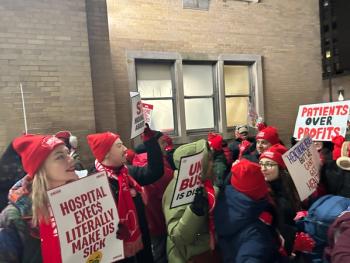
FTC, HHS warn hospitals of risks from online tracking tools, and potential penalties
Federal agencies say the technology could disclose patient data. Some breaches have been tied to the technology, and the FTC has begun issuing fines.
Health systems, and companies in many industries, use online tools to learn more about their customers, but those technologies carry security risks, federal officials say.
The Federal Trade Commission and the Department of Health and Human Services have issued a warning about the risk of data breaches tied to online tracking tools.
The agencies sent a
The letter alluded to the FTC’s recent penalties for the disclosure of health data, which include fines exceeding $1 million.
“As recent FTC enforcement actions demonstrate, it is essential to monitor data flows of health information to third parties via technologies you have integrated into your website or app,” the letter states.
The letter said such breaches could lead to identity theft and distress for patients.
“When consumers visit a hospital’s website or seek telehealth services, they should not have to worry that their most private and sensitive health information may be disclosed to advertisers and other unnamed, hidden third parties,” Samuel Levine, director of the FTC’s Bureau of Consumer Protection, said in a statement.
Melanie Fontes Rainer, director of the HHS Office of Civil Rights, said the agency is concerned about the disclosures of private health data.
“Although online tracking technologies can be used for beneficial purposes, patients and others should not have to sacrifice the privacy of their health information when using a hospital’s website,” she said in a statement.
Cybersecurity experts say
However, some breaches have been tied to the disclosure of patient data through tracking tools, and some of those incidents have affected millions of patients.
Community Health Network said last November that it suffered a similar breach. Community said in a
Federal regulators also point out that they have issued penalties for disclosures of patient information.
The FTC issued an action against GoodRx Holdings Inc., which provides discounted drugs and telehealth services, directing them to stop sharing health data with other parties for advertising purposes.
In March, the
“The FTC is again serving notice that companies need to exercise extreme caution when using online tracking technologies and that we will continue doing everything in our powers to protect consumers’ health information from potential misuse and exploitation,” Levine said in a statement last week.
In this video interview from December 2022, Lee Kim, senior principal for cybersecurity and privacy for HIMSS, discusses ways hospitals can protect their systems.




























































































